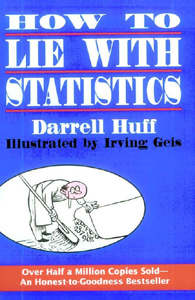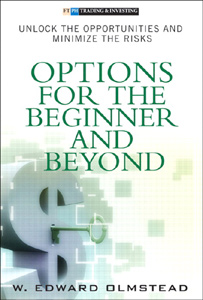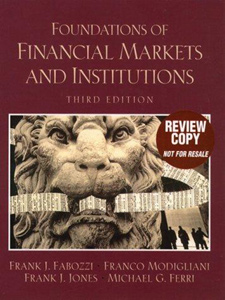Glossary of Stock Trading and Investment Terminology
The listed investment companies or LICs are the ones that are managed by investment professionals who invest in assets like local and international shares as well as in infrastructure assets. LICs have a long history in the Australian market. The Australian Foundation Investment Company (AFIC) is one of the oldest LICs of the country which is about 79 years old. Some other old LICs include Choiseul and Milton and Argo Investments.
Fundamental analysis is a technique of estimating the future returns from the stocks of a company by analysing its financial statements, market share, competency of management, competitive advantage and many other factors. In order to forecast an accurate return in future, fundamental analysis considers the current as well as historic data.
When it comes to fundamental analysis of a company, there are two types of fundamental factors a trader needs to take under consideration:
- the quantitative factors; and
- the qualitative factors
In terms of the Australian stock market, a market maker is a broker who creates a simulated market, quoting both a buy and a sell price in a financial security, either a stock or a derivative (e.g. ASX instalments, forex dealers or certain CFD brokers). Market makers make their profit from the bid offer spread. Because marketmakers quote buy and sell simultaneously, they create liquidity in the market.
Base Metals refer to some of the common non-ferrous industrial metals that easily corrode or oxidise. Although they are not as expensive as the precious metals like gold, platinum or silver, base metals are considered as some of the most important items of today’s commodity market. Lot of people are getting more and more interested about trading base metals these days since this particular sector offers a lot of potentials for those who are willing to make profit from the price discrepancy of the commodities.
Various factors that influence option price are termed as “Greeks”. The Greeks helps a trader to understand how much an option is exposed to implied volatility, time-value decay and changes in the underlying price of the asset, usually stocks, shares and other market listed securities. Investors can estimate the level of risk in trading options by using these risk measures. There are mainly four types of Greeks that are usually used to measure risk:
- Delta
- Vega
- Theta
- Gamma
Delta
Relative Strength Index or RSI is a technical analysis indicator that determines the magnitude of gains against the magnitude of losses over a certain period of time. RSI is widely used to determine whether a market is overbought or oversold. The calculation involves doing analysis of the bullish ranges against the bearish ranges for a certain period of time which is usually 14 days.
The calculation of RSI is done in the following way:
RSI = 100 - (100 / 1 + RS)
A non-renounceable rights issue is when a company offers its shareholders the right to purchase more of the company's stock, usually at a discount to market rate. Compared to renounceable rights, the offer is not transferable to other parties and cannot be bought or sold. Issuing more shares of a stock dilutes the value of current outstanding stock on the market.
Dark pools of liquidity (also dark pools or dark liquidity) are financial buying and selling venues or crossing networks similar to exchanges but that provide liquidity that is not displayed on order books. This is useful for financial traders who wish to transfer large numbers of shares with out revealing themselves to the open industry.
Also referred to as "beta coefficient," beta is a number describing the relation of returns compared with that of the market. It measures an investment’s volatility and indicates sensitivity of a stock’s rate of return. For example, a beta higher than 1 means higher price volatility than market volatility. A beta below 1 means lower price volatility than the market. The beta coefficient is an important element in the Capital Asset Pricing Model (CAPM).
A buy back (also buyback) is buying what had previously been sold or given away. It is offsetting purchase to liquidate a short sale. You initiate a buyback by making offers to investors or making transactions on the open market over a period of time. When a buyback is done, the share of stock owned by a company is increased as well as the earnings per share, and thus market value.
- How to Trade Forex and Gold Options
- How to Trade the Gold Price and Profit!
- Forex Trading the EUR/USD Pair € EURO and $ US Dollar
- How to Trade Stock Market Indices S&P500
- How to Trade Crude Oil
- Forex Trading Psychology
- What Are Broker Recommendations?
- Free Tickets to Trading & Investing Seminar & Expo ($18) Brisbane 2013
- Stock Calc App
- All About Warrants
- Introduction to Exchange Traded Funds
- Introduction to Exchange Traded Funds: Features
- Introduction to Exchange Traded Funds: Domestic ETFs
- Introduction to Exchange Traded Funds: International ETFs
- Exchange Traded Commodities
- Australian Stock Scan
- Australian Online Share Trading
- List of Trading Books
- Interesting Thoughts about the Australian Dollar
- What's the Meaning of Hawkish?
- Do You Know How To Use the P/E Ratio
- Trading, Religion and Politics - Do They Have Anything in Common?
- Shares that are Volatile that Double and Half in the Short Term
- Telstra (TLS) T3
- Margin Call by E-mail
- The Cost of Holding a Position
- Lack of Disclosure: Compensation from ASX Listed Company
- Unrealistic Returns and Benchmarks
- CMC Markets Down
- Quality versus Quantity Forex Trading
- Woolworths 1H Sales $30.7bn up 3.2%
Date added 31-01-2013 - ASIC Fines CommBank's CommSec
Date added 25-09-2012 - Industry Super Network Calls to Ban High Frequency Trading (HFT)
Date added 22-09-2012 - NAB Launches Online Share Trading Platform
Date added 19-09-2012 - Reserve Bank of Australia Says 23 Countries Holding AUD
Date added 18-09-2012 - Australia Post Digital Mailbox
Date added 10-09-2012 - Winners and Losers of Trading for Week 2
Date added 16-01-2012 - 2012's First Week of the Best and Worst Traded Stocks
Date added 09-01-2012 - 2011's Last Best and Worst Traded Stocks
Date added 05-01-2012 - Best and Worst Pre-Christmas Traded Stocks
Date added 30-12-2011 - Trading Winners and Losers for Dec. 12-16
Date added 19-12-2011 - Best and Worst Traded Stocks for Dec. 5-9
Date added 13-12-2011 - Top 3 Best and Worst Traded Stocks
Date added 05-12-2011 - ASX Glitch Trading Halt
Date added 27-10-2011 - Worst Trade Stocks (and the Best)
Date added 06-08-2011
Top 150 Public Companies Listed on the Australian Stockmarket as at 29/05/2009
- BHP Billiton
- Westpac Banking Corporation (WBC)
- Commonwealth Bank of Australia (CBA)
- National Australia Bank (NAB)
- Telstra (TLS)
- ANZ
- News Corporation (NWS)
- Woolworths Limited(WOW)
- Woodside Petroleum Limited (WPL)
- Rio Tinto
- Westfield Group (WDC)
- Westfarmers Limited (WES)
- QBE Insurance
- CSL
- Newcrest Mining Limited (NCM)
- Origin Energy Limited (ORG)
- Santos Limited (STO)
- AMP Limited (AMP)
- Macquarie Group (MQG)
- Foster’s Group Limited (FGL)



